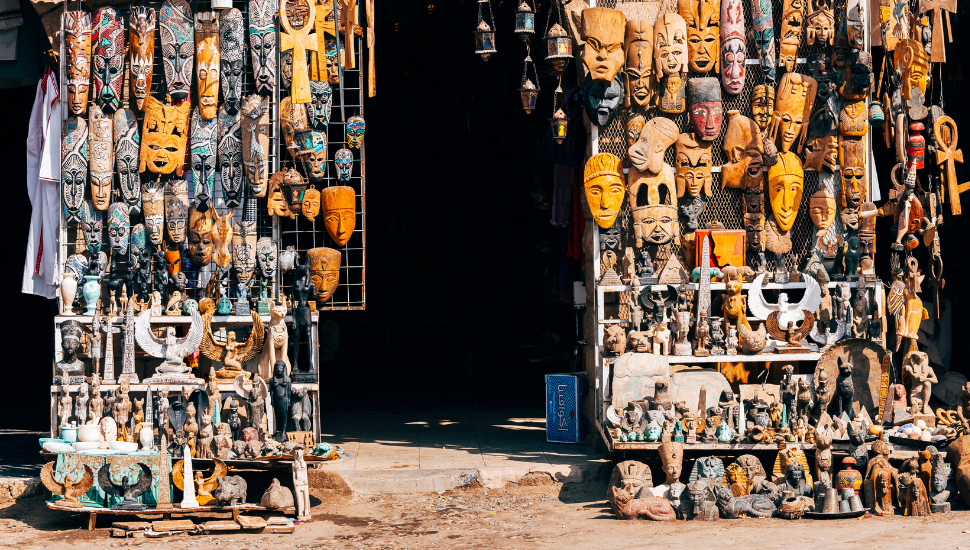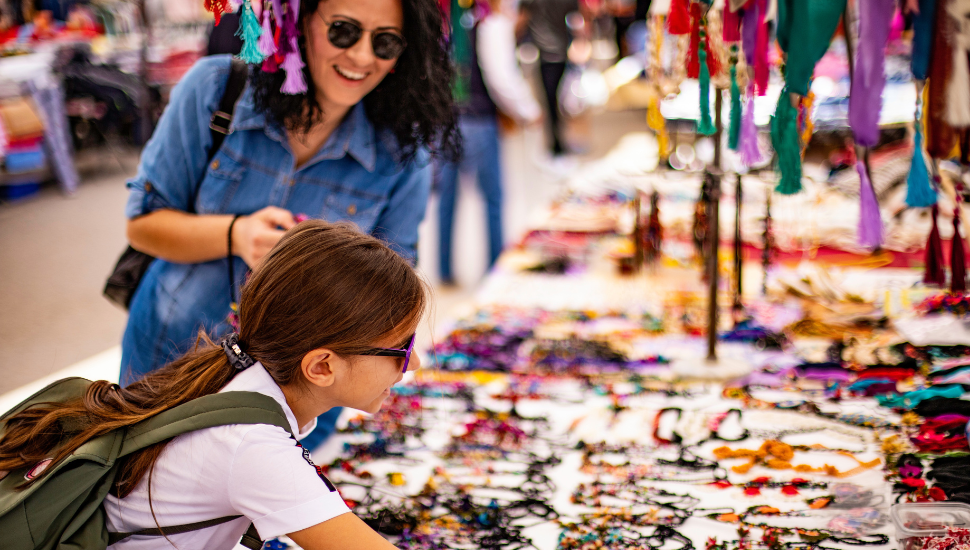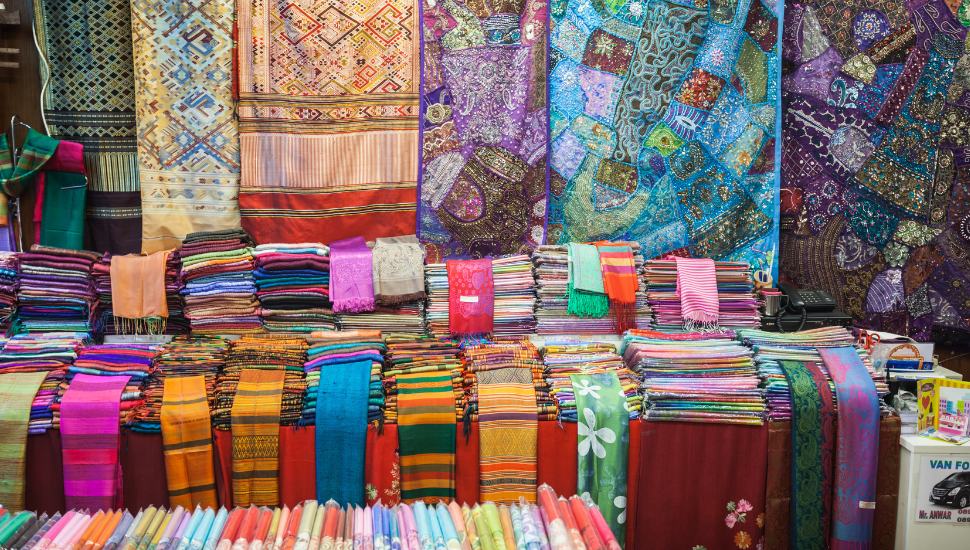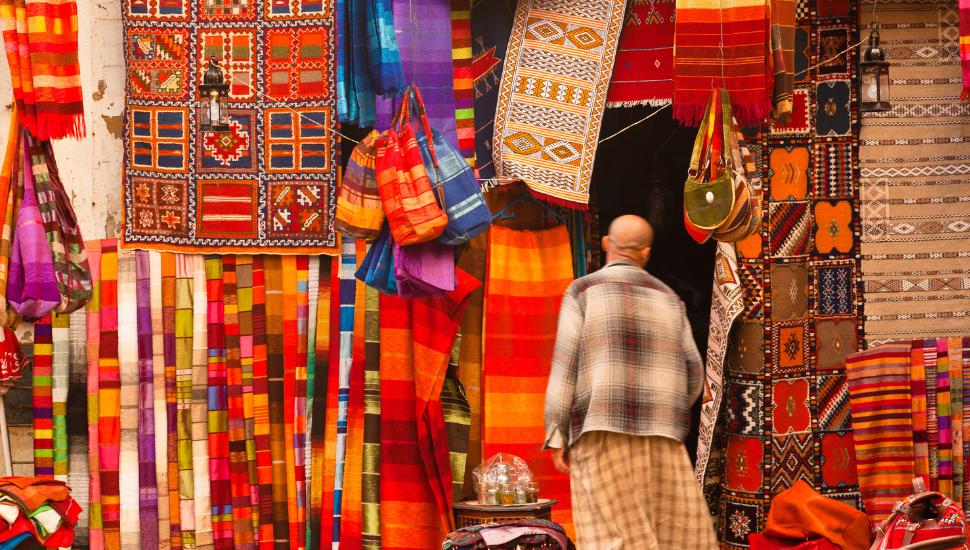9 Must-Know Tips for Buying Souvenirs On Holiday
Learn how to find quality souvenirs for a good price - while avoiding scams
Buying souvenirs is a great way to bring back happy memories from past holidays or to give to the folks back home. From golden Pharaoh ornaments to Borneo face masks, Eiffel Tower keyrings to New York City snow globes - today's holidaymaker is presented with innumerable trinkets and mementos that they can take home and treasure.
But making sure you end up with a quality item for a fair price takes a little effort.
Here we explore how to purchase souvenirs that will stand the test of time and won't bring back unpleasant memories of being 'ripped off' by unscrupulous street vendors.
1. Make space in your luggage
If you have a Waltons-size family, you'll need to leave enough space for taking back souvenirs.
Even if you only plan on buying a memento for yourself, it's a good idea to leave extra room, just in case you see something you really like that's on the bigger side.
If you're travelling with hand luggage only - for example, on a weekend city break - you'll need to be super-discerning when it comes to packing.
For those with stowed luggage, this is less of an issue, but you'll still need to leave gaps for those gifts!
2. Think about what you want in advance
If you're not an impulse-purchase kind of person, it's a good idea to consider what souvenirs you want in advance, then you can pencil in an afternoon (or a couple of days!) to go shopping.
You might even research the best places to buy gifts.
This is more important if you plan on buying something expensive or where authenticity is critical. No one likes to return home to find their Ming vase is a fake!
3. Buy items you will use
It's a good idea to buy items that serve a purpose. Need a wall hanging for that space on the kitchen wall? Something to fill a gap on the mantelpiece? An ornament to brighten up the spare bedroom?
Souvenir hunting abroad is a great opportunity to make your home look more unique.
Well-chosen, offbeat items can be a great conversation starter when entertaining: Where DID you get your Zulu warrior shield from?
4. Ask trusted locals where to buy souvenirs
Your hotelier may have useful information about where to buy certain types of items and where you'll get the best deals.

5. Beware the hard salesman - or woman
Selling souvenirs is big business in tourist hotspots. Sadly, some vendors resort to high-pressure sales. Be wary of folks trying to get you into their shop, especially if they've 'bumped into you' on the street some distance from their purported premises.
Some may begin with small talk before beckoning you to their "uncle's shop".
Other unorthodox sales techniques include being offered a super cheap 'tour of the city' by a tuk-tuk driver, only later to find yourself in a silk shop being pressured into buying a three-piece suit. Some vendors can get a little 'shirty' if you refuse their goods.
Such methods can be more common in emerging economies in North Africa, South Asia, and Southeast Asia.
If you don't feel comfortable, walk away.
6. Master the art of haggling
Us Brits like to see the price printed clearly on everything. Unfortunately, bargaining for goods is more common in some overseas destinations. Some of us would even prefer paying a little more for a price-marked item, just to avoid the discomfort of haggling.
Here are some quick tips for haggling:
- Don't agree to the first price offered. Aim to haggle at least a third off this figure - more if you're feeling energetic.
- Go shopping at the end of the day when vendors will be looking for some quick sales before close of play.
- If the price isn't right, begin to walk away - the price will likely come down pretty quick. Staying quiet can also work, or, if the item is in your hands, placing it back on the shelf can elicit the desired discount. You might even produce the cash that you're willing to part with, the sight of which can have a price-reducing effect. "I need something a little cheaper" is a useful phrase. It's also a good idea to only go shopping with the amount you plan to spend - preventing you from being bamboozled into paying more.

7. Beware the incredulous laugh
Some vendors - and taxi drivers - use the ‘incredulous laugh’ technique. This occurs when you say a price and the vendor laughs at you: the more poorly-maintained dentures you see, the more incredulous they will appear to be.
The laugh is to demonstrate how incredibly off-the-mark you are. In reality, your offered price is likely to be more than fair.
And if they do agree to your price, be ready for them to act hard-done-by, or for that dazzling grin to disappear.
8. Be willing to walk away and buy elsewhere
Whatever item you're after, it will surely be offered by many other vendors. So if the price seems too high, don't be afraid to walk away.
9. Ensure your purchases are ethical and legal
It's best to stay away from forgeries and fakes. While buying counterfeit goods is not illegal (although making and selling them is), they may be made of substandard materials, and the proceeds may be used to fund other illegal activities.
And be sure to avoid anything that could land you in hot water back home - endangered animal and plant species, rough diamonds, and meat and dairy produce from most non-EU countries.
Bringing back certain medications and drugs could also attract scrutiny from the UK Border Force, with unpleasant results. Note that some countries allow over-the-counter sales of medications that are controlled in the UK.
Get a Quote